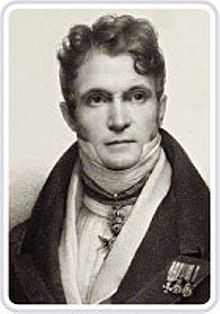La vestale
| Gaspare Spontini |
|---|
 |
|
Operas
|
La vestale (The Vestal Virgin) is an opera composed by Gaspare Spontini to a French libretto by Étienne de Jouy. It was first performed on 15 December 1807 by the Académie Impériale de Musique (Paris Opera) at the Salle Montansier, and is regarded as Spontini's masterpiece.[1] The musical style shows the influence of Gluck and looks forwards to the works of Berlioz, Wagner and French Grand Opera.[2]
Composition history
Spontini had finished La vestale by the summer of 1805 but had faced opposition from leading members of the Opéra and rivalry from fellow composers.[3] The premiere was made possible with the help of Spontini's patron, the Empress Josephine, but only after being rearranged by Jean-Baptiste Rey and Louis-Luc Loiseau de Persuis.[4] La vestale was an enormous success, enjoying over two hundred performances by 1830.[5]
Performance history
Its fame soon spread abroad; it first appeared on the Italian stage in Naples in 1811, and it was performed in Stockholm in 1823. It was premiered in the United States in French at Théâtre d'Orléans in New Orleans on 17 February 1828.[6] Important 20th-century revivals include the 1954 production at La Scala with Maria Callas in the title role, which was the first opera staging by the famous film director Luchino Visconti.[3] La vestale is famous in historical terms but is only very infrequently performed. Two of its arias (translated to Italian and recorded by Maria Callas and Rosa Ponselle), "Tu che invoco" and "O Nume tutelar", are better known than the work as a whole. In recognition of its role in the development of Richard Wagner's third opera, Rienzi, it was performed in concert form in Dresden's Semperoper in the Summer of 2013.
Roles
| Role | Voice type[7] | Premiere cast[8] 15 December 1807 (Conductor: Jean-Baptiste Rey) |
|---|---|---|
| Licinius, Roman general | tenor | Étienne Lainez |
| Cinna, head of a legion | tenor | François Lays or Lay |
| Chief Priest | bass | Henri-Étienne Dérivis |
| Julia, young vestal | soprano | Alexandrine-Caroline Branchu |
| The Great Vestal | mezzo-soprano | Marie-Thérèse Maillard |
| Chief of the Aruspices | bass | Duparc |
| A consul | bass | Martin |
Synopsis
- Place: Rome
- About 269 BC
Act 1
Returning to Rome after a victorious campaign, Licinius finds his beloved Julia has become a priestess of Vesta. Although Julia attempts to avoid going to Licinius's triumph, she is delegated to present him with a wreath. He tells her that he intends to kidnap and reclaim her.
Act 2
In the temple of Vesta, Julia guards the eternal flame and prays to be freed of temptation. Licinius arrives; during their rapturous reconciliation, the flame expires. Licinius is advised by Cinna to flee. Julia is interrogated by the High Priest but refuses to name Licinius. She is sentenced to death for licentiousness.
Act 3
Despite the pleas of Licinius, Julia is to be buried alive; even when he admits his intrusion to the Temple, Julia claims not to recognise him. A thunderstorm ensues, during which lightning reignites the sacred flame. Recognising this as a sign from the Gods, the High Priest and Vestal Priestess release Julia who is then married to Licinius.
Recordings
- Maria Vitale, Elena Nicolai, Renato Gavarini, Alfredo Fineschi, Giuliano Ferrein, Albino Gagi – Chorus and Orchestra della Rai di Roma, conducted by Fernando Previtali (Warner Fonit, 1951)[9]
- Rosalind Plowright, Gisella Pasino, Francisco Araiza, Bavarian Radio Chorus, Munich Radio Orchestra, conducted by Gustav Kuhn (Orfeo, 1991)[9]
- Karen Huffstodt, Denise Graves, Anthony Michaels-Moore, Dimitri Kavrakos, Chorus and Orchestra of La Scala, conducted by Riccardo Muti (Sony, 1993)[9]
References
Notes
- ↑ Holden, p. 1002
- ↑ Holden, pp. 1003–4; Wagner conducted La vestale in Dresden in 1844 (source:Del Teatro).
- ↑ 3.0 3.1 Del Teatro
- ↑ Castil-Blaze 1855, p. 115
- ↑ Barbier p.72
- ↑ Warrack & West 1992, p. 741.
- ↑ According to Anselm, p. 978.
- ↑ According to the original score, p. 1.
- ↑ 9.0 9.1 9.2 Source of some of the recordings in this list: operadis-opera-discography.org.uk
Sources
- Original score: La Vestale, tragédie lyrique en 3 actes de M. Jouy, mise en musique par Gaspard Spontini, Paris, Pacini, s.d. (accessible for free online at Gallica - BNF)
- Barbier, Patrick (1995), Opera in Paris 1800-1850 Amadeus Press.
- Castil-Blaze (1855), L'Academie imperiale de musique, Vol. II, Paris:
- DelTeatro.it: background, synopsis for La vestale (Italian)
- Faul, Michel (2009), Les aventures militaires, littéraires et autres de Étienne de Jouy de l'Académie française, Éditions Seguier. ISBN 978-2-84049-556-7
- Anselm, Gerhard, Vestale, La, in Sadie, Stanley (ed.) (1997). The New Grove Dictionary of Opera, Grove (Oxford University Press), New York, 1997, IV, pp. 977–979. ISBN 978-0-19-522186-2
- Holden, Amanda (ed.) (2001), The New Penguin Opera Guide, New York: Penguin Putnam. ISBN 0-14-029312-4
- Warrack, John; West, Ewan (1992). The Oxford Dictionary of Opera. Oxford: Oxford University Press. ISBN 0-19-869164-5.
External links
- La vestale: Scores at the International Music Score Library Project
- Score, University Library, Goethe University Frankfurt
- About Étienne de Jouy who wrote La vestale (French)